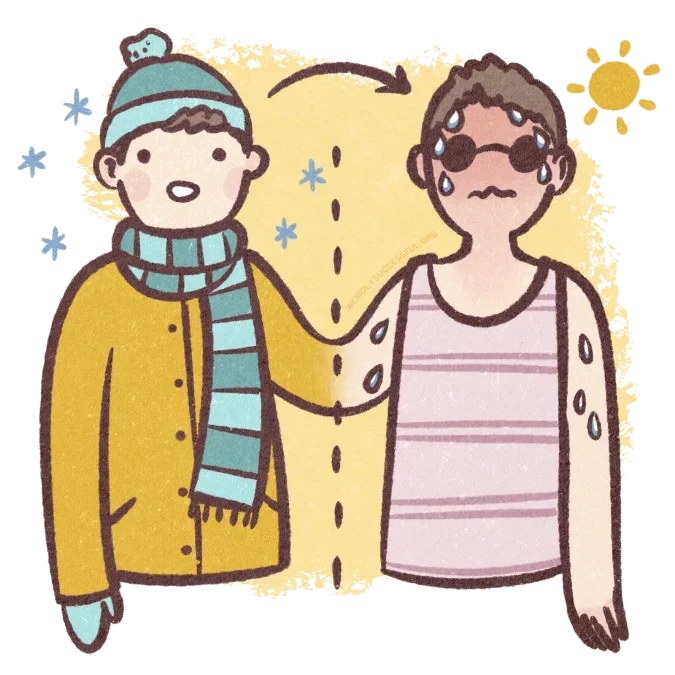Transitions, in the context of neurodiversity, refer to the process of moving from one state, activity, or place to another. It involves a shift in attention, focus, and cognitive resources, and if this shift is too overwhelming, it can cause inertia.
For neurodivergent folk, it may require additional time, support, and strategies to manage effectively.
Transitioning can encompass a wide range of changes, from minor daily shifts like moving from one task to another to major life changes such as transitioning from school to work or from living at home to independent living.
Differences in transitioning are usually associated with autism, but anyone with sensory sensitivities can benefit from adjustments around transitioning if it helps them.

Why is transitioning so challenging for some neurodivergent people?
Moving from one state or activity to another can be a very overwhelming experience, especially if you’re trying to adjust to a change in stimuli or information, and switching contexts.
These can include changes in temperature, sensations on our bodies, and more. For example:
- going outside when it’s hot from the cold flat
- travelling to a warm place during your winter
- leaving the nice, toasty bed on a cold morning
- going into the water for a shower or a swim
- coming out of the water to dry up
- going into a dark room from the light
- leaving the dark movie theatre and entering daylight again
- getting dressed and wearing clothes
- taking clothes off
How to help with transitions?
The overwhelm of transitioning can lead to sensory overwhelm, so it’s important to have support systems ready to ease with these processes.
As with context switching, you can try factoring time in to adjust before and after an activity you know you’ll need more time to transition into or out of, or have time to decompress.
Sometimes getting tired during the day can make transitions require more effort, so for example, if you notice that the later it is, the harder it is for you to go and take a shower, you can try and move your showering time ahead and do it while you still have the executive function to do it with less effort.
Body doubling can also help, either by having someone to talk you through the task or just to chat with you to distract you from the uncomfortable feeling while in transition mode.
Also, you can add helpful support items to your adjustment toolkit. A few examples:
- soft, comfortable and warm bathrobes for after showering
- warm, seamless socks for cold mornings
- a playlist with your favourite songs for dreary mornings
- nice smelling (or no fragrance) soap and shampoo that’s gentle on your skin
- cute or pretty accessories that make you smile
- fairy lights or dimmable lights for dark days instead of harsh lights
- a comfortable pair of sunglasses for sunny days
- fruity toothpaste and a soft-bristled toothbrush
- not-sticky, fast-absorbing body lotion that helps with itchy skin and putting it on improves your circulation
- anything that can make the overwhelming task or transition more comfortable for you.




